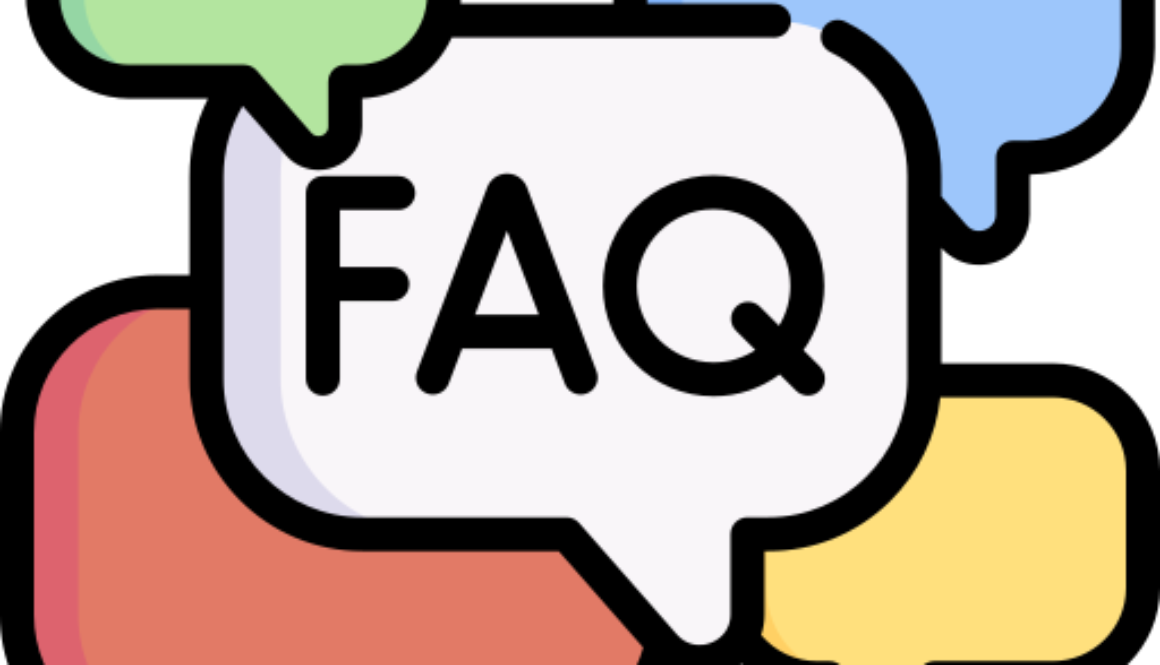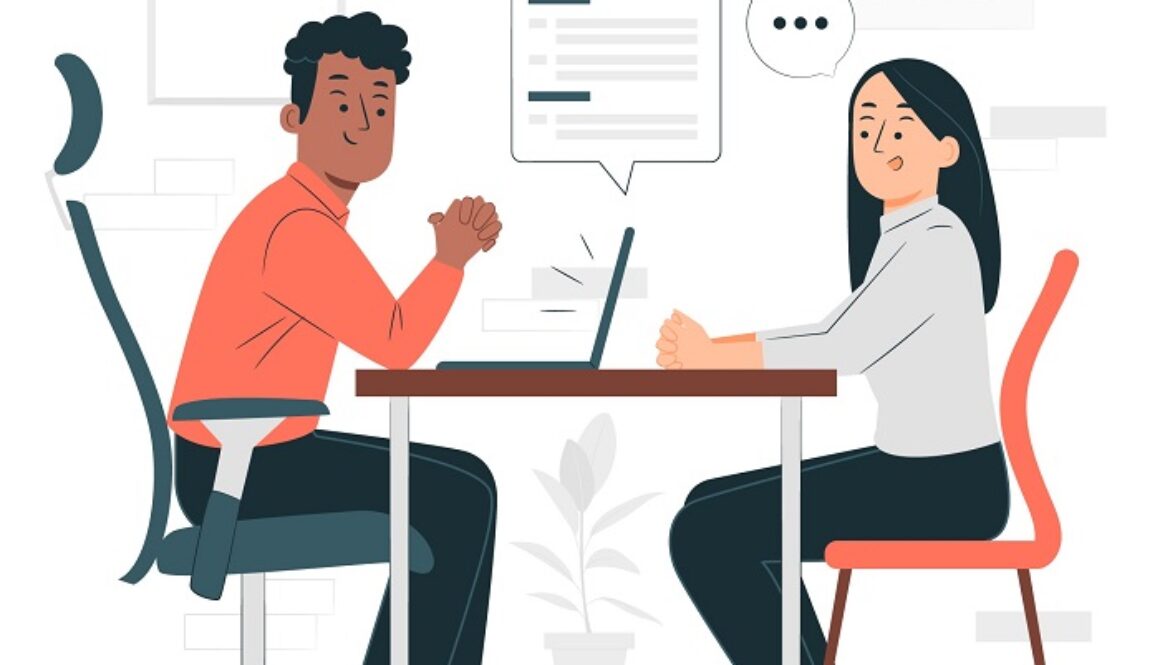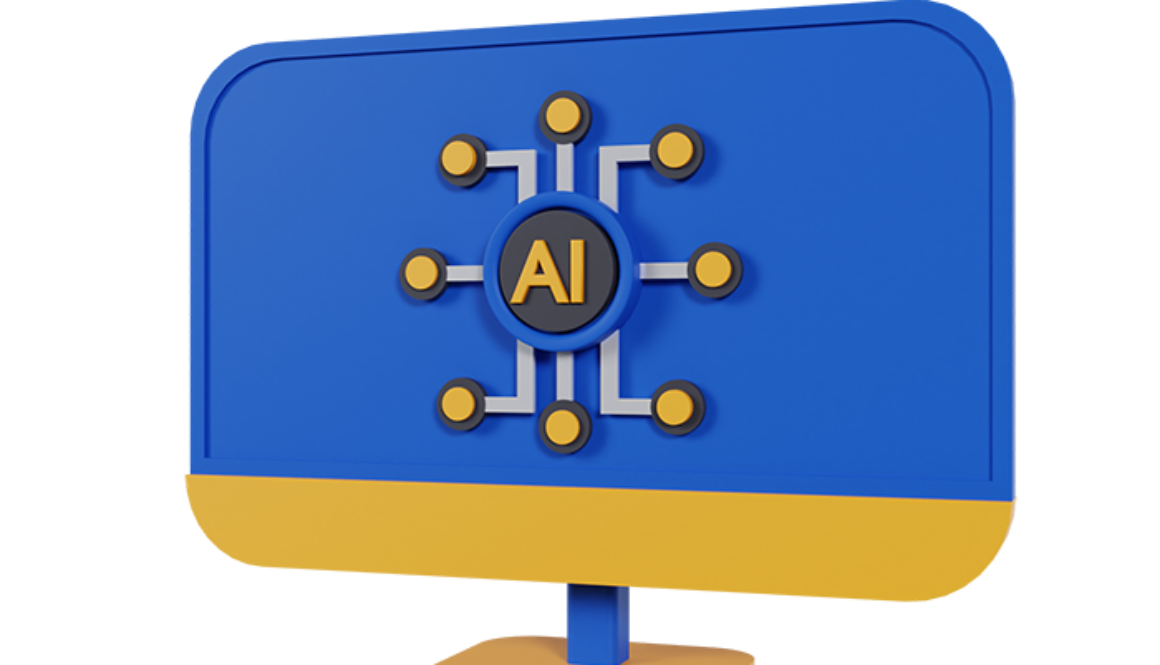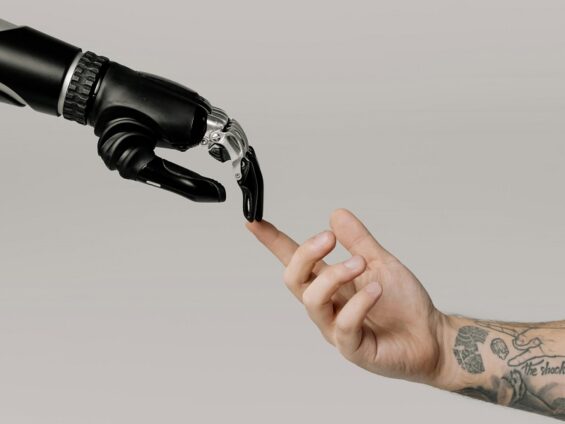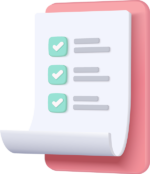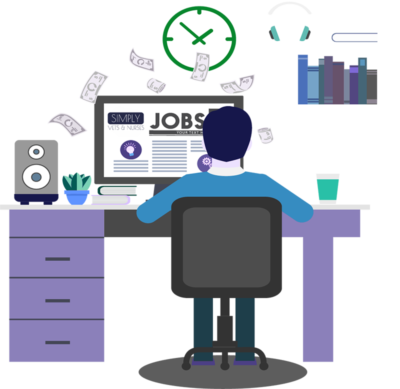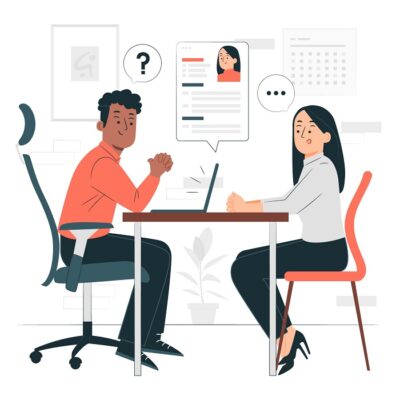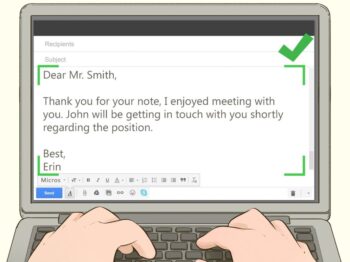30 Most Frequently Asked Interview Questions (With Answers)
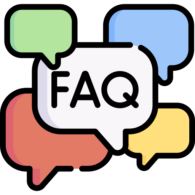
TOP 30 INTERVIEW QUESTIONS (WITH SAMPLE ANSWERS)
There are many common interview questions that most employers ask. If you prepare for these questions, you can readily communicate that you have the skills, experience, and personality for the open position.
In this article, we share the top 20 interview questions that hiring managers ask along with tips and examples to help you answer key questions effectively.
Let's Get Started
1. Tell Me About Yourself? Best Opportunity To Make Your Impact & Display Suitability For The Job
Answer: “I have a strong background in [your field], with [X] years of experience. I’ve successfully [mention a key achievement or skill] and am excited about the opportunity to contribute to [company/role].”
OR
My name is Kaushik. I did my Masters in Marketing. Previously I was engaged with XYZ company as [Designation], there I was responsible for [mention 3-4 key responsibilities]. There I got an award for XYZ reason.
Apart from it, my hobbies are [mention a hobby that will be related to the job], hence when I came across this job opening I was excited as it aligns with my interests.
2. What Are Your Strengths? Be Expressive, Share Results From The Previous Company As A Results Of Your Traits
Answer: “One of my strengths is [specific skill or trait], which I’ve developed through my experiences in [relevant situations].”
3. What is your greatest weakness? Explain How You Overcame Your Weaknesses
Answer: “I used to struggle with [specific weakness], but I’ve actively worked on improving it by [mention a strategy or skill development].”
4. Why Do You Want To Work For This Company? Explain Why You Are A Good Fit For The Company, How Your Experience Will Help Them
Answer: “I’m drawn to [company] because of its strong commitment to [specific values or goals], and I believe my skills in [your skills] align well with the company’s mission.”
OR
“As I have mentioned earlier, my interests align with the company’s doings, hence I am sure I will enjoy the work, moreover the experience I possess will significantly reduce the requirement of hand holding and training, reducing the induction time.
5. Where Do You See Yourself In Five Years? Be Goal Oriented, Specific, Yet Keep An Open End
Answer: “In five years, I envision myself in a [higher-level position] where I can contribute my expertise in [specific area] to help the company achieve its goals.”
6. Can You Describe A Challenging Situation You've Faced At Work And How You Handled It? Be Engaging While Narrating, Be Proud Of Your Work
Answer: “In my previous role, I encountered [challenge], and I addressed it by [specific actions taken] which resulted in [positive outcome].”
7. How Do You Handle Stress And Pressure? Be Engaging While Narrating, Be Proud Of Your Work
Answer: “I handle stress by [mentioning a stress management technique] and prioritize tasks to ensure I meet deadlines without compromising the quality of my work.”
8. What Is Your Preferred Work Style?
Answer: “I thrive in a collaborative environment where open communication and teamwork are valued. However, I’m also comfortable working independently when needed.”
9. Tell Me About A Time You Demonstrated Leadership Skills.
Answer: “In my previous role, I led a project where I had to [briefly describe the project] and successfully motivated my team to achieve [specific goals].”
10. How Do You Stay Updated On Industry Trends?
Answer: “I stay current by regularly reading industry publications, attending relevant conferences, and participating in professional development courses.”
11. Why Should We Hire You?
Answer: “I bring a unique combination of skills, experience, and a strong passion for [industry/role]. I am confident that my contributions will positively impact the team and help achieve company objectives.”
12. What Do You Know About Our Company? Do Proper Research Beforehand. Do Your Homework Seriously.
Answer: “I’ve researched your company extensively and am impressed by [specific achievements, projects, or values]. I’m excited about the opportunity to contribute to such an innovative and forward-thinking organization.”
12. How Do You Handle Constructive Criticism? Do Not Be Rigid. Explain You Are Open To Critisism & Constructive Feedback
Answer: “I see constructive criticism as an opportunity for growth. I actively seek feedback, reflect on it, and use it to continually improve my performance.”
13. Tell Me About A Time You Had To Meet A Tight Deadline. Be Expressive Of How You Value Time
Answer: “In my previous role, I had to complete [task/project] within a tight deadline. I successfully managed my time, prioritized tasks, and collaborated with my team to ensure timely delivery.”
14. What Motivates You?
Answer: “I’m motivated by [personal or professional goals], and I find fulfillment in overcoming challenges and making meaningful contributions to the success of the team and organization.”
15. How Do You Handle Conflicts In The Workplace?
Answer: “I address conflicts by first understanding the perspectives of all parties involved. I then work towards finding a mutually agreeable solution through open communication and compromise.”
16. Describe A Situation Where You Had To Adapt To Change.
Answer: “In my previous role, our team underwent a significant restructuring. I adapted by staying flexible, acquiring new skills as needed, and collaborating with my colleagues to ensure a smooth transition.”
17. What Do You Consider Your Biggest Professional Achievement?
Answer: “One of my proudest achievements is [specific accomplishment], where I [briefly describe the achievement] and significantly contributed to the success of the project.”
18. How Do You Prioritize Tasks And Manage Your Time Effectively?
Answer: “I prioritize tasks by assessing their urgency and importance. I also use tools like [mention any productivity tools] to organize and manage my workload efficiently.”
19. How Do You Handle Situations Where You Don't Know The Answer? Explain You Are Open For Gaining New Knowledge
Answer: “If I don’t know the answer, I admit it openly and then take the initiative to research and learn. I believe in continuous learning and am always eager to expand my knowledge.”
Remember, these answers are just examples, and it’s crucial to personalize them based on your own experiences and the specific requirements of the job you’re interviewing for.
20. Can You Give An Example Of A Time When You Had To Work With A Difficult Team Member?
Answer: “In my previous role, I encountered a challenging team dynamic. I took the initiative to understand the team member’s perspective, facilitated open communication, and worked towards finding common ground. Ultimately, we were able to collaborate more effectively and achieve our shared goals.”
21. How Do You Handle Tight Budgets Or Resource Constraints In Your Projects?
Answer: “I’ve experience managing projects within tight budgets by prioritizing essential tasks, negotiating cost-effective solutions, and exploring alternative resources. This involves careful planning, constant monitoring, and creative problem-solving to ensure project success despite constraints.”
22. What Role Do You Typically Play In A Team Setting?
Answer: “I’m naturally inclined towards a collaborative role within a team. I enjoy contributing my skills and ideas while fostering an environment where everyone’s strengths are utilized. However, I’m adaptable and can take on leadership responsibilities when required.”
23. Can You Provide An Example Of A Time When You Failed To Meet A Goal Or Deadline? Show Ownership Of Your Failure & The Learning Derived From It
Answer: “In one instance, I underestimated the complexity of a project, leading to a missed deadline. I took responsibility, communicated transparently with stakeholders, and devised a plan to mitigate the delay. This experience taught me valuable lessons about thorough project planning.”
24. How Do You Handle Competing Priorities Or Multiple Deadlines?
Answer: “I manage competing priorities by first assessing urgency and importance. I then organize tasks, delegate when necessary, and communicate with relevant stakeholders to ensure alignment. Regularly reviewing and adjusting priorities helps me meet deadlines effectively.”
25. What Skills Do You Possess That Make You A Good Fit For This Role?
Answer: “I bring a strong set of [specific skills relevant to the job], honed through my experience in [previous roles]. My ability to [mention a key skill] and [another key skill] positions me as a strong candidate for this role, aligning well with the requirements outlined in the job description.”
26. What Skills Do You Possess That Make You A Good Fit For This Role?
Answer: “I’m comfortable with ambiguity and adept at navigating situations with incomplete information. I rely on my analytical skills to make informed decisions, seek additional information when necessary, and maintain flexibility in adapting to evolving circumstances.”
27. Can You Share An Example Of When You Had To Learn A New Technology Or Software Quickly?
Answer: “In a previous role, I had to rapidly learn [specific technology/software] to meet project requirements. I immersed myself in online tutorials, sought guidance from experts, and applied the knowledge hands-on. My proactive approach allowed me to efficiently incorporate the new technology into the project.”
29. How Do You Ensure Effective Communication Within A Team Or With Clients?
Answer: “I prioritize clear and open communication by establishing regular check-ins, using collaboration tools, and actively listening to team members or clients. I believe in setting expectations, providing updates, and addressing concerns promptly to maintain a positive and transparent communication flow.”
30. Describe A Situation Where You Had To Overcome A Significant Obstacle At Work.
Answer: “I faced a substantial obstacle when [briefly describe the obstacle]. I tackled it by [specific actions taken], involving collaboration with cross-functional teams. Through perseverance and creative problem-solving, we overcame the obstacle and achieved our project objectives.”
We hope, now you have a better understanding about how to handle these frequently asked questions. Try not to robotic and artificial with your answers, always be natural and confident while answering. Being honest will make a positive impression in the interviewer’s mind.

